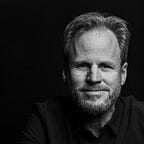Facebook’s Problems Are the Friends
You would think that Facebook’s biggest problems are data security, hate speech and commercialization. You are forgiven. These problems are bad enough. But the much bigger problem, still hidden, is everyone’s friends.
I was an early Facebook user. I say “was” because I recently deleted my Facebook account.
It wasn’t because of data security concerns. Security is an ongoing, never-ending concern of mankind. Facebook works hard on making it safer, and it will keep working on it just like all every other organisation out there. I’m not worried about that.
It’s also not because of hate speech. Hate speech can be censored. Here the important question is if we want censorship and how much. This is certainly a hot topic in a free society but not unsolvable as China and Russia prove beyond doubt. But nobody wants their policies.
Finally, it’s not about Facebook’s profit-maximising commercialization strategy that I think they should drop. I am angry that my private interactions are used to sell me products. That shouldn’t be the case. If I meet someone, if I call someone or if I write to someone, it is a private interaction and should not be used as a marketing instrument. Facebook’s clients are not yet aware that they infringe on their customers private life if they advertise on Facebook. That will eventually haunt them. Who wants an ad to pop up on the dinner table when getting together with family and friends? That’s essentially what Facebook ads are doing. They pop up on perfectly private affairs. This is wrong and should not go on much longer. People’s interactions are owned by the people, and not by a company looking to maximise profits!
Hate speech and ownership of social interactions are problems that are serious enough for a broad political discourse and democratically established rules. I hope this discussion starts soon at the highest legislative institutions.
However, security, hate speech and commercialization are not why I deleted my Facebook and WhatsApp accounts and locked my twitter account to private mode.
The reason why I quit most of the social networks runs deeper. The reason is my friends!
It all began well. I was an early Facebook user and my friends were early users, too. Early users are interesting. They seek new ways, they take the other path. Often their private life is interesting, too. Seeing what they do and hearing what they have to say was fascinating. I don’t have to tell you why. Everyone who has used a social network knows how these first exchanges feel. You get a completely new feeling of closeness to people that used to be far away.
But that closeness is also the core problem.
Humans have never been in constant interaction with hundreds of their peers. On the surface, this looks like a great invention. When the water polo club of my son opened a chat on WhatsApp, it looked like an efficient way to communicate. But then the problems started. We ignored the human nature of “friends”! The first time some mother asks for the speedo left in the boys locker, you think “how convenient”. After a dozen other mothers and fathers answered “I didn’t see them”, you may lift an eyebrow. When you realize after half a year that only two or three messages actually contained useful information but you had to read through hundreds of “me too” and “me not” messages to get to them, you may be ready for what I did and delete your account, too.
Facebook is even worse. The first friends I had to block were my extended family. Facebook decides that your family is important and shows you virtually everything of your family. In most families that means meals, cats, dogs, children’s plays and their athletic “achievements” and, worst of all, their political opinions. This all is bad enough at family reunions. I don’t need that every evening.
Was blocking my family enough? No, because the rest that Facebook finds for you is just as bad. Other people’s meals, cats, dogs, children’s plays, their athletics and political opinions.
If you reflect on this, the reasons for the boring Facebook feeds are obvious. Some are better at entertaining others and some are worse. It’s better to leave your news feed to those that are better at it.
I don’t blame people for sharing what only few want to know. You cannot expect people to carefully evaluate their current emotions and experiences and soberly decide what is actually interesting to others. I made my mistakes, too. I shared my son’s ski races, the mountaintops we climbed and the ocean sunsets we watched. I never spend a second thinking about my friends without kids, my friends who are sick at home and can’t climb a mountain or my friends that cannot afford to travel to watch an ocean sunset.
Broadcasting is just not something you do at your leisure, it is a profession. Let’s leave it to the professionals. If you have private moments to share, just share them with the people that come to your mind. Typing these names in your email address line or your Threema account is a good check to make sure you don’t alienate your audience. Much safer than broadcasting on Facebook.
